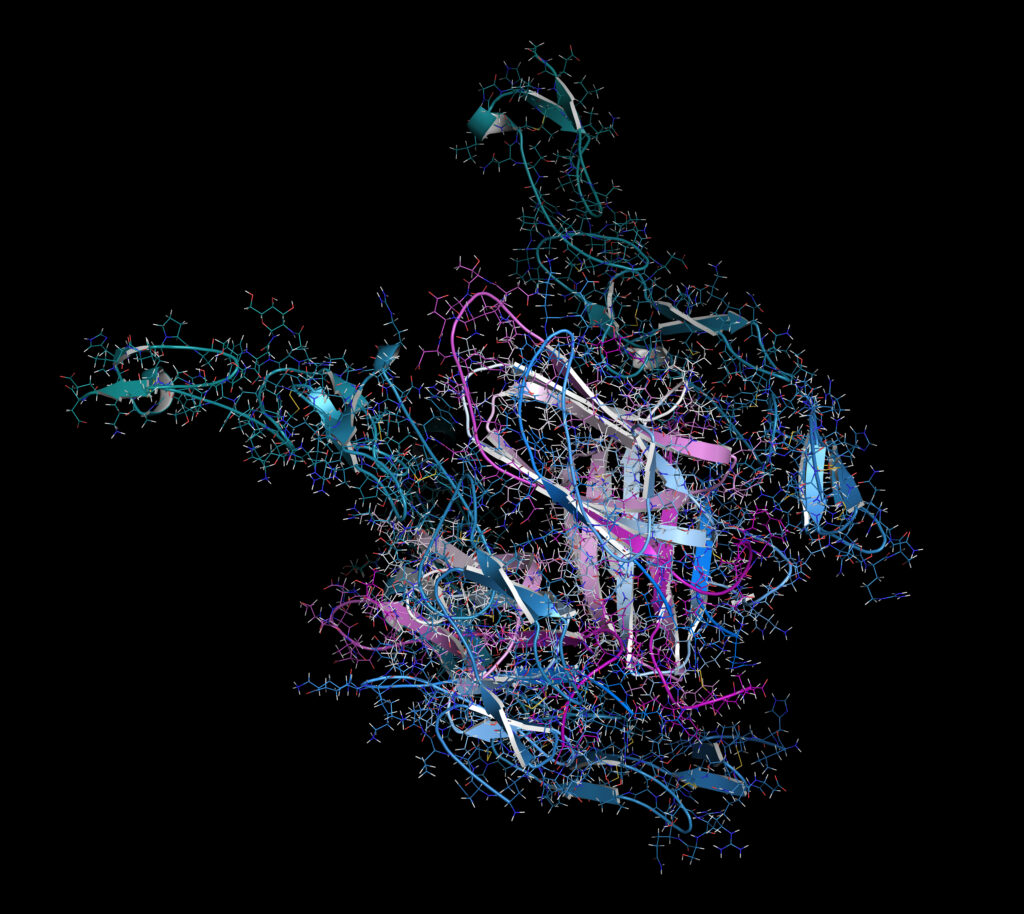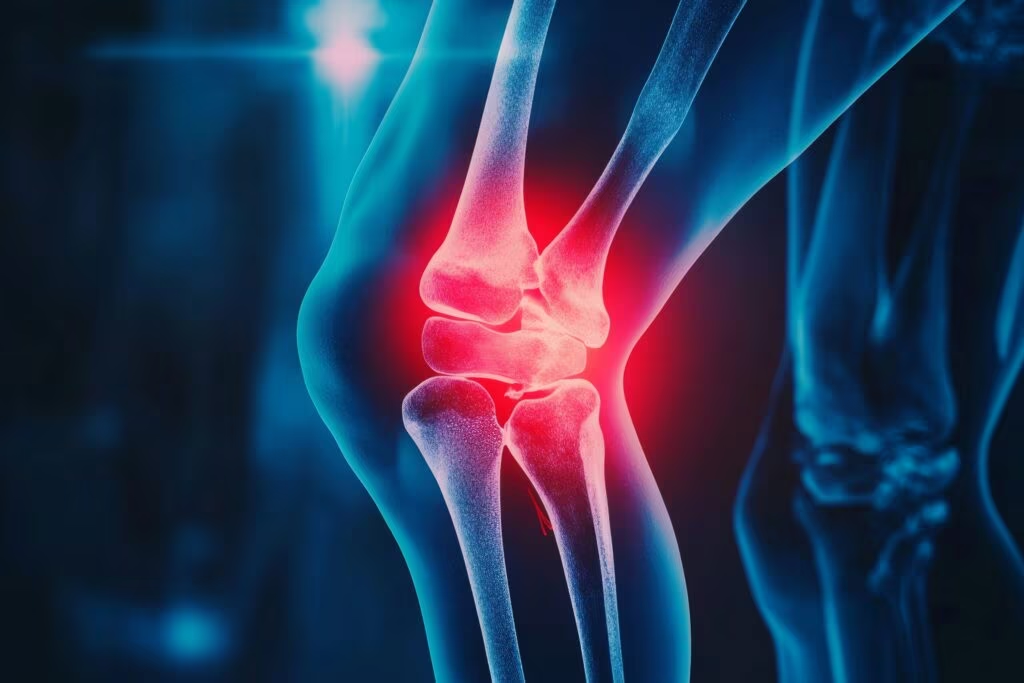Search Results
Showing Results for Anti-drug antibodies

RGB-19 Matches Tocilizumab in Efficacy and Safety: Promising Phase III Data from RA Biosimilar Trial
In this EULAR 2025 interview, Professor Ernest Choy (Cardiff University School of Medicine, UK) discusses the Phase III trial results of RGB-19, a proposed biosimilar to tocilizumab, in adults with active rheumatoid arthritis. He outlines the study’s design, key efficacy and safety findings, and the potential impact of biosimilars like RGB-19 on improving access to biologic therapies.

The Phase II ARGO trial evaluated the IL-17A and IL-17F inhibitor sonelokimab in psoriatic arthritis, showing promising clinical efficacy and significant improvements in patient-reported outcomes (PROs). In this interview, Prof. Laure Gossec highlights how sonelokimab reduced disease burden and improved quality of life, emphasizing the importance of PROs in assessing treatment effectiveness and guiding future development.

Dr. Vinod Ravindran (Centre for Rheumatology, Calicut, Kerala, India) shares his highlights from RheumaPreg 2025, held in Vienna. The conference covered the full spectrum of pregnancy management in autoimmune rheumatic diseases. Here, he reflects on key insights from expert-led sessions on fertility, immunosuppression, lupus care, and postpartum outcomes.

Rheumatoid arthritis (RA) is one of the most challenging autoimmune diseases. Early, targeted and effective therapy is crucial for achieving remission and preventing long-term joint destruction. Over the past two decades, tumour necrosis factor (TNF) inhibitors (TNFi) have been the ...

The use of immune checkpoint inhibitors (ICIs) in treating cancer has greatly improved survival outcomes, particularly in patients with advanced disease for whom successful treatment options have previously been limited. For example, in patients with metastatic melanoma, the median survival ...

As we have come to expect, EULAR 2024 was a busy and productive meeting, packed with news and lively discussions among rheumatologists. The conference, which took place in Vienna, Austria, highlighted a wealth of innovative research and significant advancements in rheumatology. ...

To understand what sets izokibep apart from other IL-17 inhibitors and its potential for treating PsA, we spoke with one of the study's investigators, Prof. Peter Taylor. Prof. Taylor discusses the study's findings, focusing on its efficacy and tolerability, and explores what these results could mean for clinical practice. With several IL-17 inhibitors already approved or in development for PsA, we also examine how izokibep could fit into the current treatment paradigm. Additionally, we discuss the importance of ongoing research to fully determine izokibep's benefit/risk ratio and optimal dosage

It is increasingly recognized that autoimmune rheumatic diseases (ARDs) can affect people of any age, starting from early childhood and continuing until later in life. Furthermore, in recent decades, it has become apparent that Sjögren disease (SjD), commonly diagnosed ...

The global burden of disease is heavily impacted by the increased prevalence of chronic inflammatory rheumatic diseases (CIRDs [rheumatoid arthritis (RA), spondyloarthritis (SpA), connective tissue diseases (CTDs) crystal arthropathies and polyarticular osteoarthritis (OA)]), which are prevalent chronic non-communicable diseases associated ...

Diffuse alveolar haemorrhage (DAH) is associated with high morbidity and mortality. The causes of DAH are diverse, and include rheumatologic conditions such as granulomatosis with polyangiitis (GPA), microscopic polyangiitis (MPA), Systemic lupus erythematosus (SLE) and Goodpasture’s syndrome (Table 1). Rheumatologists ...

Although biological disease-modifying antirheumatic drugs (bDMARDs) are significantly cheaper now that biosimilar agents are available, they still represent a significant cost to health services worldwide, particularly since their prescription has only increased since the thresholds for commencing this treatment have ...

Systemic lupus erythematosus (SLE) is a multisystem, autoimmune disorder affecting skin, joints, kidneys, the heart, lungs, the brain and blood cells, and is characterized by heterogeneous presentations and severity. It is more common in females than males, with a ratio ...

Biologics are medications derived from biological sources used to treat several immune-mediated inflammatory diseases. These medications interfere with autoimmune processes by inhibiting specific molecular or cellular targets. They are highly effective medications, mostly used in cases of moderate-to-severe disease activity. ...

touchIMMUNOLOGY spoke with editorial board member Jérôme Avouac (Hôpital Cochin, Paris, France) to discuss his highlights from the European Alliance of Associations for Rheumatology (EULAR) annual meeting in the field of rheumatoid arthritis, and his presentation on ...

The QUASAR Phase 3 Induction Study (NCT04033445) investigated the efficacy and safety of the IL-23 p19 subunit antagonist guselkumab in the treatment of moderately to severely active ulcerative colitis. We caught up with Dr Jessica Allegretti (Brigham and Women's Hospital, Boston, ...

Antibody-cytokine fusion proteins are a promising immunotherapy that could overcome off-target immune cell activation and the short serum half-life associated with low-dose interleukin-2 treatment. We were delighted to talk with Dr. Jamie Spangler (Johns Hopkins University, Baltimore, MD, USA) around ...

Systemic rheumatic diseases (RDs) commonly arise during a woman’s reproductive years and may have implications for family planning and pregnancy. Among the RDs, systemic lupus erythematosus (SLE) and antiphospholipid syndrome (APS) are classically associated with an increased risk of ...
Latest articles videos and clinical updates - straight to your inbox
Log into your Touch Account
Earn and track your CME credits on the go, save articles for later, and follow the latest congress coverage.
Register now for FREE Access
Register for free to hear about the latest expert-led education, peer-reviewed articles, conference highlights, and innovative CME activities.
Sign up with an Email
Or use a Social Account.
This Functionality is for
Members Only
Explore the latest in medical education and stay current in your field. Create a free account to track your learning.


